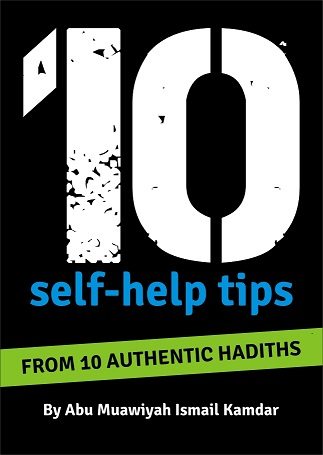Incorrect Beliefs that are killing your confidence
This is an extract from our bestselling eBook: Best of Creation: An Islamic Guide To Self-Confidence.
This was covered in the previous chapter (of Best Of Creation) to some extent, when we discussed the concept of arrogance and humility. That is an example of just one wrong belief that kills confidence. There are others too. For example, the belief that it is wrong to desire and try to obtain the good things of this world.
Is Wealth a bad thing?
Some Muslims look down upon the wealthy, and regard the pursuit of Halal wealth as evil. In this way, they limit their own potential and get in the way of their own success. If you look at the Sahaba, many of them were wealthy businessmen and this did not take away from their piety at all. Classic examples of this include Abu Bakr, Umar, Uthman and Abdur Rahman Ibn Auf who were all wealthy businessmen and among the ten greatest companions.
In fact, through their Halal wealth they were able to do more good deeds than others by engaging in charity and humanitarian efforts that those with less wealth couldn’t do. The prophet (peace be upon him) never condemned them or stopped them from doing business and getting richer. He just emphasized that the wealth should be Halal, spent on good things and should not consume the heart in a way that leads to the disobedience of Allah or the oppression of his creation.
A Hadith about Wealth
The following narration is evidence that the Prophet (peace be upon him) and his companions regarded Halal wealth as a good thing:
Abu Hurairah reported that the poor amongst the emigrants came to the Messenger of Allah (peace be upon him) and said, “The wealthy have obtained the highest ranks and the lasting bliss,” The Prophet (peace be upon him) said, “How is that?” They said, “They pray as we pray, and they observe fast as we observe fast, and they give charity but we do not give charity, and they set slaves free but we do not set slaves free,”
Upon hearing this, the Messenger of Allah (peace be upon him) said, “Shall I not teach you something by which you will catch up with those who have preceded you, and get ahead of those who come after you, only those who do as you do will excel you?” They said, “Yes, Oh Messenger of Allah.” He said, “Praise Allah, declare His Greatness, and Praise Him thirty-three times after every prayer,”
Abu Salih said that the poor amongst the emigrants returned to the Messenger of Allah (peace upon him) saying, “Our brothers, the wealthy have heard what we have done and they did the same,” So the Messenger of Allah (peace be upon him) said, “This is Allah’s blessing which He gives to whom He wishes.”[1]
In this narration, it is clear that the Prophet (peace be upon him) and his companions viewed wealth as a blessing from Allah that can be used for great deeds. And they competed in doing such deeds. In fact, the poorer companions envied the wealthy companions. Not for any negative reason, but because they wanted to do as much charity work as their wealthier brothers.
The blind leading the blind
Another incorrect belief that leads to low self-confidence is the belief in blind following of elders. Many Muslim communities teach young people that you can never be as good as, as intelligent as, or as knowledgeable as the early Muslims. Since you can never be like them, don’t even try! Just follow the local school of thought and conform. As a result, many young minds, who could have grown into Mujtahids[2] and great scholars, end up wasting their potential due to this self-defeating belief.
If you think about it, this belief is both illogical and baseless. There is nothing in the Quran or Sunnah that indicates that latter Muslims cannot rise up to the intellectual levels of early scholars, and psychologically it doesn’t make any sense either. So, on what grounds can we claim that people today who work hard enough cannot become great scholars? It is self-defeating beliefs like this that hold back the ummah from returning to its former glory.
Are you working to achieve your destiny?
Another incorrect belief that holds people back is a misunderstanding of Qadar (Destiny). A fatalistic approach to Qadar leads to the victim mentality. Many people assume they are just victims of a bad destiny and that their lives can never improve. As a result, they live each day complaining about all the problems in their lives. But never doing anything proactive to fix them.
Qadar is a complex theological issue and this is not the place for a detailed discussion. Suffice to say that the Islamic concept of Qadar does not negate free will or responsibility. It provides a context for understanding things beyond our control and helps us remain humble. But it is not meant to keep us down.
Islam teaches us to focus on solutions and finding a way out of our problems. If Allah puts us in a test, part of that test is rising above the problems and growing through it. And this cannot be done with a defeatist or fatalistic attitude.
Is the Afterlife all about Hellfire?
One more belief that needs to be discussed is an overemphasis on punishment and Hellfire. Some Muslim communities talk about sin in the most condemning of language and leave people with no hope of repentance. This leads to despair, low self-confidence and loss of any hope.
Islam teaches us to find a balance between fear and hope. Furthermore, both of these emotions should be based on love of Allah. Our love for Allah should lead to us hoping for His Mercy whenever we slip. Yet being fearful enough of displeasing Him to avoid living a sinful lifestyle. This fear is rooted in love. Just like a child fears displeasing its parents, a believer fears displeasing his Creator. Yet, just like a loving parent forgives the child for its mistakes, Allah is Most-Forgiving and accepts all repentance. As a result, there is no room for losing hope in His Mercy.
Conclusion
These are some of the most common causes of low self-confidence. Overcoming any of these requires changing some of our beliefs, habits and thinking patterns. This can be done with the right guidance. Inshaa Allah, this book will assist you in rising up to the challenge of life and overcoming any obstacles along the way.
[1] Saheeh Muslim 4:1239
[2] Mujtahid: A person who makes Ijtihad i.e. someone who has the skills, knowledge and intellectual capabilities to deduce rulings for contemporary Fiqh issues
This was extracted from Best of Creation. Purchase the full eBook today to continue learning more about how to gain self-confidence the Islamic Way.
Click Here to purchase the eBook.






